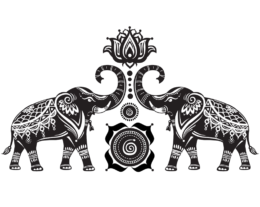Estrogen is a crucial hormone in the body, especially for women’s sexual and reproductive health. It FluCTUTES Naturally through the menstrual cycle and decreases after menopause. There are three main types of estrogen: which appears after menopause, estradiol, the most potent estrogen during reproductive years, and estriol, the primary estrogen found dognancy. Estrogen plays a significant role during puberty by developing secondary female characteristics, regulating menstrual cycles, and supporting ovulation. It also also influences important processes in the skeletal, cardlet, and central nervous systems, impacting overall health. MainTaining Balanced Estrogen Levels is key, as both high estrogen and low estrogen can lead to various health problems.
Also read: Higher Thyroid Hormone Level May Increase Chances of Heart Failure
What Causes Estrogen Ibalance?
High Estrogen Levels Can Be Cured by Excess Body Fat, Hormonal Medications, Chronic Stress, and Exposure to Xenoestrogens (Found in Plastic, Pesticides, and other chemicals). Common Symptoms of High Estrogen Include Weight Gain, Bloating, Mood Swings, Heavy Periods, and Breast Tenderness. On the other hand, low estrogen levels can occur during menopause but can also be caused by factors like excessive exercise, Eating disorders, and chronic Illness. Symptoms of low estrogen include irregular periods, hot flashes, night sweets, mood swings, and vaginal dryness. Keeping estrogen balanced is essential for better health and well-eating.
7 Foods to Help Balance Estrogen Levels
Balancing estrogen levels through your diet is one of the Easiest Ways to Support Your Body. Whether you’re dealing with high or low estrogen, Certain Foods Can Help Restore Balance.
Here are 4 foods to reduce high estrogen:
1. Cruciferous Vegetables:
Broccoli, cauliflower, brussels sprouts, and kale are rich in indole-3-carbinol, a compound that helps the liver process and eliminal excess estrogen.
2. Fibre-Rich Foods:
Whole Grains, Fruits, Vegetables, And Legmes LIKE LENTILS and Chickpeas Can Help Reduce High Estrogen by Promoting Healthy Digestion and Detoxification.
3. Flaxseeds:
These small but powerful seeds are high in lignans, which help to bind to estrogen receptors, potentially Reducing Excess Estrogen in the body.
4. Green tea:
Green tea is loaded with antioxidants and compounds that Support Hormonal Balance and Overall Health, Making it a Great Drink for Managing Estrogen Levels.
Also read: 5 habits that could be ruining your hormones (and the foods that fix them!)
Estrogen Imbalance affects overall health.
Here are 3 foods to boost low estrogen
1. Soy products:
Tofu, Tempeh, and Soy Milk are packed with phytoestrogens, plant-based compounds that mimic estrogen in the body, helping to alleviate symptoms of low estrogen.
2. Nuts and seeds:
Almonds, Sunflower seeds, and seeds are excellent sources of phytoestrogens and healthy fats, which help promote hormonal balance.
3. Fruits and Vegetables:
Apples, Carrots, Cherries, and Yams are rich in Phytoestrogens and essential nutrients that support hormone regulation and balance.
Legmes: Chickpeas, Lentils, and Beans are great plants-based sources of phytoestrogens that can help balance estrogen levels.
Also read: PCOS DIET: How Gond Katira May Help Keep PCOS Symptoms at Bay
8 Lifestyle Tips for Balancing Estrogen Naturally
In addition to eating the right foods, your lifestyle choices play a significant role in keeping estrogen levels balanced.
1. Maintra a healthy weight:
Extra Body Fat Can Increase Estrogen Levels. Staying Active and Eating a Balanced Diet Are to Maintaining a Healthy Weight.
2. Manage Stress:
Chronic stress can disrupt hormonal balance. Incorporating Stress-Reduction practices like yoga, meditation, and Deep Breathing Exercises Into Your Daily Routine Can Help Mainten Stable Estrogen Levels.
3. Exercise regularly:
Regular Physical Activity Helps Regulate Hormones and Alleviates Symptoms of Estrogen Imbalance, Such as Mood Swings and Weight Gain.
4. avoid xenoestrogens:
Synthetic estrogens found in plastic, pesticides, and personal care products can interfere with your body’s natural estrogen levels. Look for Organic and Natural Alternatives to Reduce Exposure.
5. Limit alcohol and caffeine:
Both alcohol and caffeine can affect estrogen metabolism. Limiting your intake of these substances can help maintain hormonal balance.
6. Get Quality Sleep:
Sleep is Crucial for Hormone Regulation. AIM for 7-9 hours of restful sleep each Night to Support Overall Health and Balance Your Estrogen Levels.
7. Staying hydrated is also also essential:
Drink Planty of Water, and Try Adding Sugar-Free Drinks to Your Daily Routine. Fruits that are high in water content, like watermelon and cucumbers, also help keep your body hydrated.
8. Add herbs to your daily diet:
Ayurvedic herbs like Ashwagandha, Shatavari, and Guduchi are commonly recommended to support hormone balance.
If you’re struggling with hormonal imbalanses, regular check-ups with your healthcare provider are important to monitor your estrogen levels and address on iSSUs Early.
The bottom line:
Balancing Estrogen is about more than just diet – it’s about adopting a holistic approach that includes includes healthy lifestyle choices, exercise, and regular health monitoring. By making small adjustments in your daily routine, you can support your body’s natural hormonal balance and enhance your overall well-eating.
Disclaimer: The opinions expressed with this article are the personals of the author. NDTV is not responsible for the accuracy, completeness, suitability, or validity of any information in this article. All information is provided on an as-is basis. The information, facts or opinions appearing in the article do not reflect the views of NDTV and NDTV does not assume any responsibility or liability for the same.
(Tagstotranslate) Estrogen (T) Diet Tips (T) Expert Tips (T) How to MainTain Estrogen (T) Estrogen Imbalance



